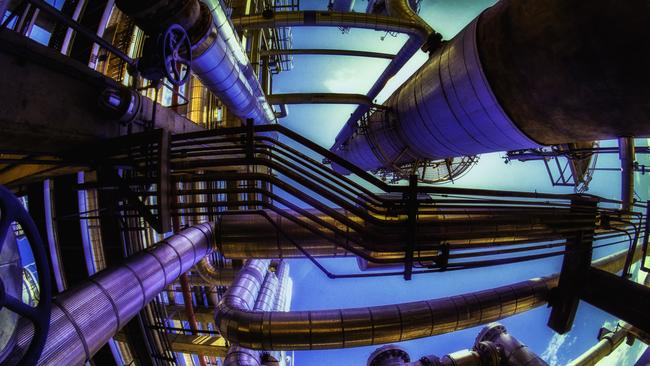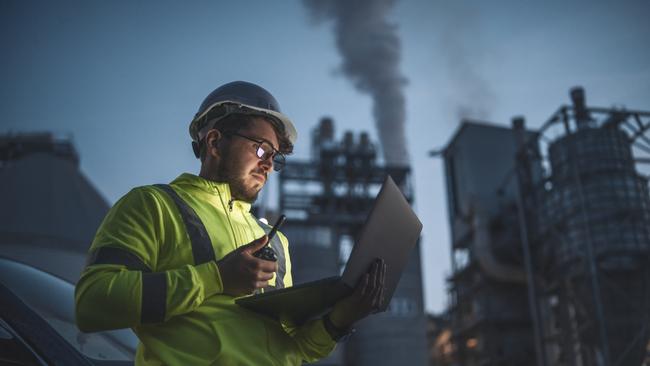Energy transition delays are inevitable, warns APA Group chairman
Australia will miss its energy transition targets and to mitigate the impact, officials must get on with approving new gas developments, APA chairman warns.

Business
Don't miss out on the headlines from Business. Followed categories will be added to My News.
Australia’s energy transition will be slower than envisaged, the chairman of APA Group has warned, as the infrastructure company suffered a first strike against the board.
Chairman Michael Fraser’s stark warning underscores growing concern within Australia’s energy industry about the pace of the country’s transition and the attitude of authorities towards the role of gas in accelerating the transition.
Australia has set a target of having renewable energy generate 82 per cent of the country’s electricity by 2030, a key pillar of the legislated target of reducing emissions by 43 per cent by the end of the decade.
But Mr Fraser, who ran AGL Energy for seven years to February 2015, said there are critical inhibitors to the policy.
“It seems abundantly clear that even with the industry’s best endeavours and the most optimistic view of the road ahead, there are several factors at play that will inevitably delay the achievement of Australia’s renewable energy targets and hence emission reduction targets,” he said.

Mr Fraser said the competition for resources and workers, inflation that dents the returns of developers, and slow approvals for new generation and transmission will be the biggest bottlenecks to the transition.
The former AGL boss said recent moves by Victoria and NSW to guarantee and prolong the use of coal generators illustrates his belief that delays are now guaranteed that Mr Fraser said will cause significant economic and political upheaval.
To mitigate the impact, Mr Fraser said Australia must support gas – a fuel source that has drawn tepid support from states and the government.
“There are several longstanding and emerging gas projects that need to be progressed quickly. The time frames needed to bring this new investment to the market are long. You can’t just wake up one day and click your fingers to solve the problem,” he said.
Mr Fraser’s comments came as the APA board suffered a first strike as more than 25 per cent of shareholders voted against the remuneration report. The Australian understands a proxy group opposed a short-term incentive component for the APA board.
Under Australian law, boards face being spilled if they suffer shareholder votes of more than 25 per cent against their executive pay proposals at two consecutive company annual general meetings.

In his address, Mr Fraser said the board is listening to shareholders.
“While the Board continues to support the FY23 remuneration outcomes and a vote in favour of our Remuneration Report, those concerns have been heard, and we will continue to engage with securityholders in relation to them,” Mr Fraser said.
Although acknowledging the protest vote, Mr Fraser said he felt compelled to warn of the impact of falling to recognise the important role of gas. The comments underscore APA’s frustration with Australia’s gas policy. Australia’s east coast faces a looming shortage as traditional supplies run dry, but new developments are struggling to win community and regulatory support.
APA has invested significant sums to expand pipeline infrastructure in anticipation of new supplies, but developments remain under a cloud.
Australia’s energy industry has in recent months moved to publicly urge states the federal government to do more to support new developments, but officials have offered only tepid support.
Prime Minister Anthony Albanese insists his government understands the important role of gas, but rising support for the Greens indicate public support for the fossil fuel is shaky.
The looming east coast shortness is expected to force the issue, with gas demand expected to outstrip supply from 2025 – leaving little time for new developments such as Santos’ Narrabri development online.
An LNG import terminal could be the solution, negating the need for new east coast developments and undercutting APA’s recent expansion.
Developers such as billionaire Andrew Forrest have begun work to construct a terminal to allow for the importation of LNG from WA or the NT, though industry sources said it remains uncompetitively priced compared to proposed new developments.
But if those new developments do not materialise, then major users will have to switch to importing gas.
More Coverage
Originally published as Energy transition delays are inevitable, warns APA Group chairman





